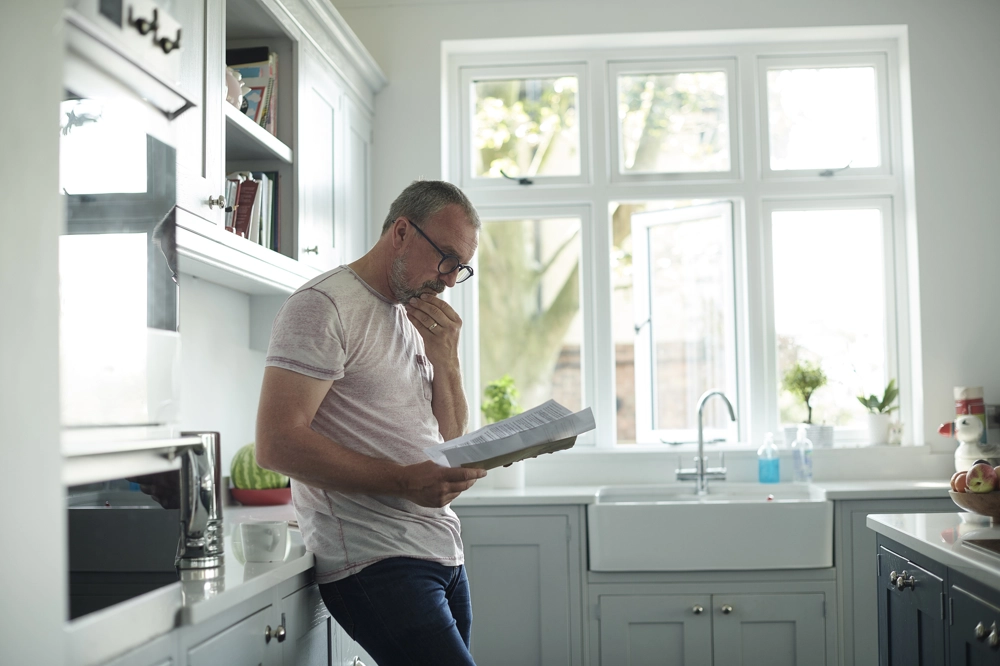Legal & General research shows buyers will pay up to 20% premium for low carbon homes
With mounting energy prices, Legal & General research shows an acceleration in consumer demand for energy efficient homes. This shift in consumer behaviour is expected to have significant implications on the value of low carbon homes.
30 Nov 2022
Full press release

- Almost two-thirds (62%) of UK households see more investment in energy efficient homes as an attractive or very attractive option to address the cost-of-living crisis.[1]
- When asked why they would buy or rent a low-carbon home, 65% of adults chose environmental factors such as reducing carbon footprint or helping to prevent climate change, whilst 37% of adults prioritise the cost savings that they would see from cheaper energy bills.[2]
- There has been a 34% uptick in searches for eco-friendly homes.[3]
- Buyers looking for a new home are willing to pay a 10.5% premium for a low carbon property, with Gen Z future buyers willing to pay 20%.
- Renters are willing to pay a 13% premium for a low carbon property.
- This assessment of capital value and rental premiums will provide useful guidance for developers, Local Authorities, and Registered Providers seeking or providing funding for environmentally friendly developments in future.
- Consumers are now rating homes with energy efficient, sustainable features as more important than the size of the property.[4]
Over the past 12 months, the UK’s energy system has been plunged into chaos, revealing its continued reliance on fossil fuels. With an expectation that the UK energy price cap will be lifted for all but the poorest households in April 2023, energy bills will continue to rise and are projected to account for 11% of household income[5] - a historic high. Increasing numbers of home buyers and renters are also considering their carbon footprint in their factors when selecting a home.
Research published today by Legal & General Capital conducted in partnership with YouGov, indicates that consumers are now recognising this increasing burden and placing a notable price premium on energy efficient, sustainable housing. Furthermore, despite this increasing consumer appetite, the research also found that only one in three ‘clearly’ understand EPCs (Energy Performance Certificates) for determining energy efficiency, suggesting that more clarity is needed about what makes a home energy efficient to encourage adoption.
These findings demonstrate a need for further guidance on the approach as to how more sustainable properties are valued and a review of current recognised metrics such as EPCs. With trends now showing that green residential buildings could generate higher purchase and rental premiums, this could represent a major turning point in the way residential housing may be valued in future. Legal & General hopes that these timely findings will inform the RICS Red Book consultation and be reflected in the value of homes in the future.
John Alker, Head of Sustainability at Legal & General Capital: “Climate change and energy efficiency have risen right up the agenda for many people when choosing a home. With buyers and renters prepared to pay a 10.5% and 13% premium respectively, energy efficiency and sustainability in homes make a material difference to the consumer. This research helps cement the business case for investors and developers to invest in low carbon homes.The research also shows that clarity is key when it comes to low carbon and energy efficiency. Energy Performance Certificates are not well understood—they need reforming to better reflect real world energy consumption and to help incentivise adoption of low-carbon technology. We need to ensure that climate and energy considerations are central to the housing market.”
Simon Century, Director of Housing at Legal & General Capital: “Today, approximately one fifth of the UK’s carbon emissions come from homes [6]. To achieve net zero by 2050, emissions from residential property must be reduced. We have to continue to Build Back Better to turbo-charge UK economic growth without stoking up the climate crisis at the same time. Every pound invested delivers an economic multiplier effect as the housebuilding and retrofitting sectors provide jobs and vital economic resilience [7]Legal & General’s research shows that location, good insulation, and lower energy bills are the top three general criteria when selecting a property. For the first time, energy efficiency is now as important as the size of the property, a welcome change to the way consumers think about buying a home. By enabling all new Legal & General homes to be operationally net zero carbon from the end of the decade, the emissions of many tonnes of greenhouse gasses will be avoided, whilst saving customers money and meeting the needs of both customers and investors who increasingly focus on sustainable solutions."
References
[1] Legal & General Rebuilding Britain Index Report, 2022
[2] All figures, unless otherwise stated, are from L&G / YouGov research amongst a UK representative sample of 2,405 adults (18-74) open to buying or renting a new-build property, Jul-Aug 2022
[3] According to data from Legal & General’s SmartrCriteria tool
[4] L&G / YouGov research, Jul-Aug 2022
[5] ONS, BEIS, Oxford Economics, Cornwall Insight
[6] What's the link between net zero and homes? - Energy Saving Trust
[7] Capital Economics, ‘Increasing Investment In Social Housing: Analysis of public sector expenditure on housing in England and social housebuilding scenarios’ (January 2019)
Further information

Harriet de Beaufort-Suchlick
Head of External Communications
Institutional Retirement



